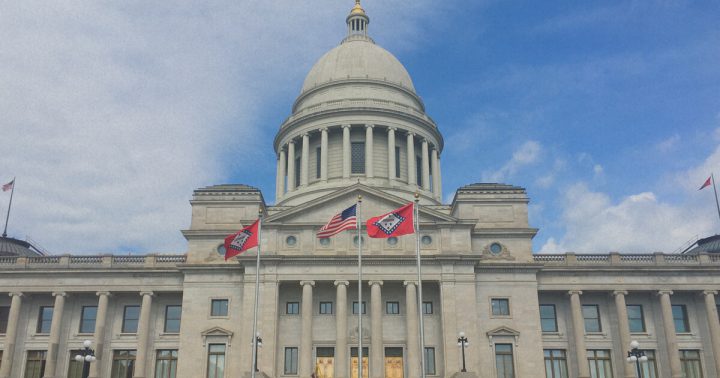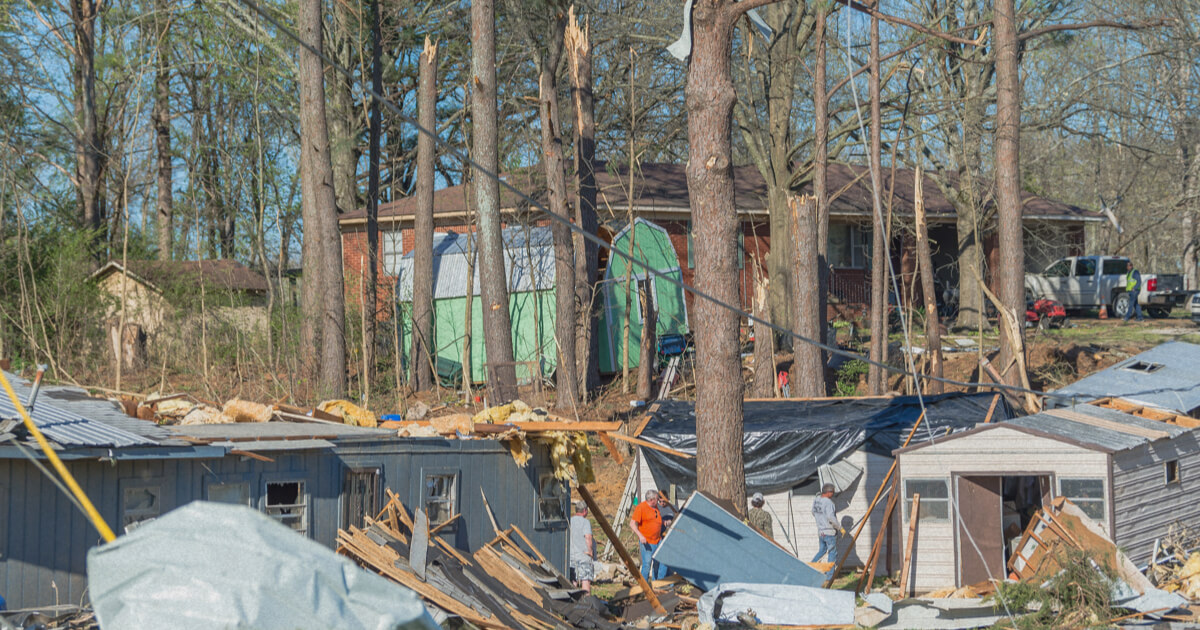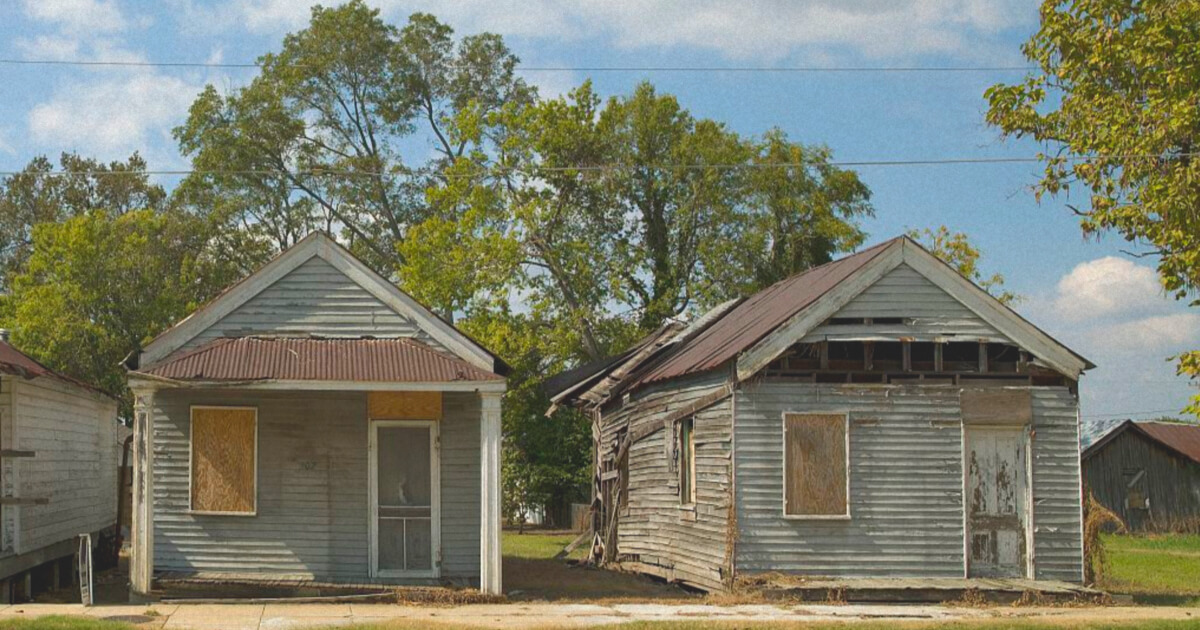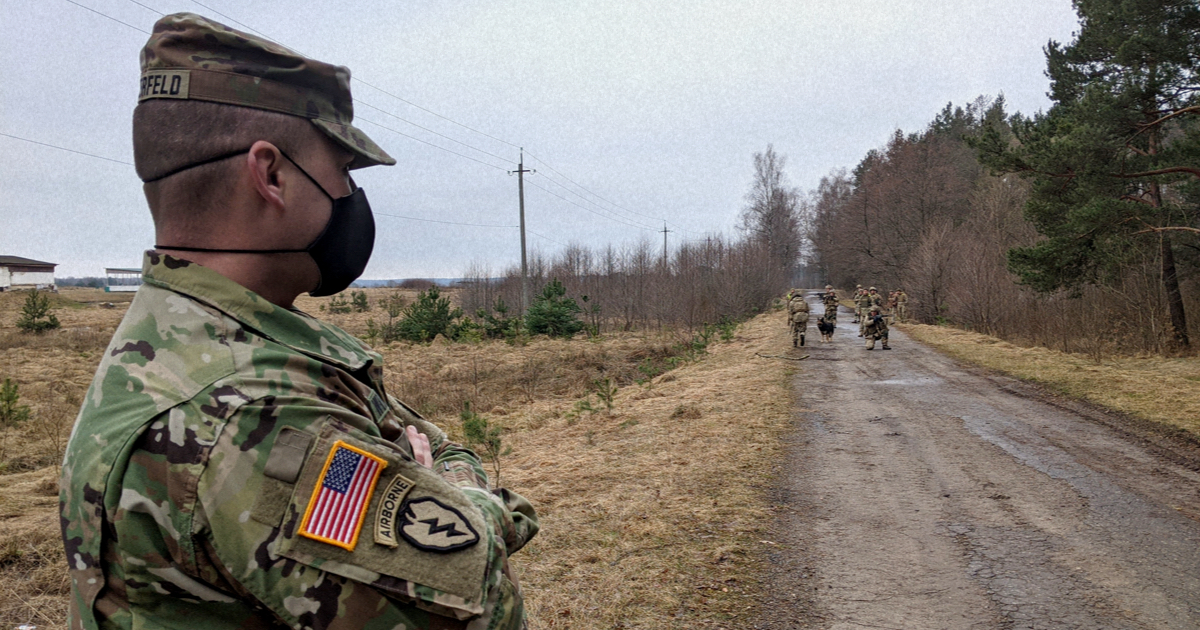Several water infrastructure projects will get a financial boost from federal COVID-19 relief funds after a state committee approved the allocation Thursday.
$270 million from the state’s American Rescue Plan Act funds, received in 2021, will be distributed among water and wastewater projects if the Arkansas Legislative Council approves the request, state Agriculture Secretary Wes Ward said during Thursday’s ARPA Steering Committee meeting.
Arkansas’ water and wastewater infrastructure needs more than $5 billion in upgrades and changes, according to a 2021 needs assessment that received more than 1,400 responses from officials statewide, Ward said.
The funds he requested from the 15-member steering committee, made up of state legislators and department secretaries, will be for financing and principal loan forgiveness for water and wastewater projects, he said.
“Essentially what we would be requesting through the American Rescue Plan is $270 million worth of grants that would significantly make a dent in those projects throughout the state,” Ward told the committee, of which he is a member.
State Sen. Bill Sample, R-Hot Springs, was the only committee member to vote against Ward’s request. Sample asked Ward if there was another potential source of funding besides the American Rescue Plan.
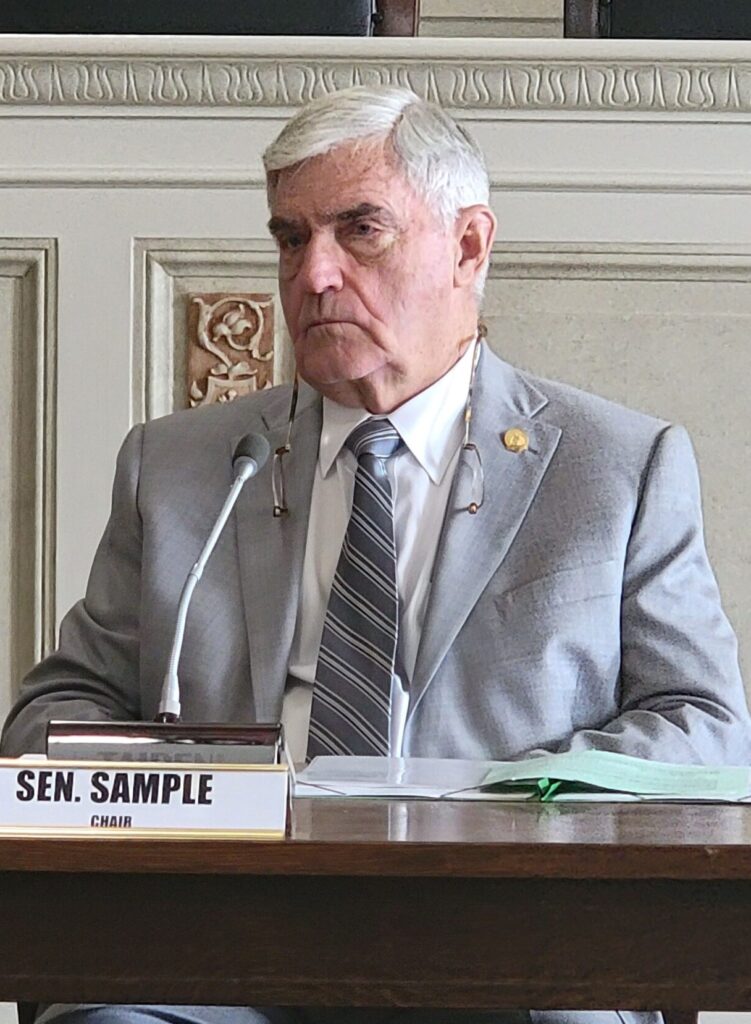
Sen. Bill Sample
(Dwain Hebda/Arkansas Advocate)
Ward said most of the Agriculture Department’s existing aid for water and wastewater projects has been low-interest loans.
“Over the last three years, we’ve [spent] almost $500 million,” he said. “Only $41 million of that has been grants and principal forgiveness…. What we’ve seen and what we’ve heard from other legislators, as well as from water and wastewater systems throughout the state, is that it’s just not enough to cover that $5 billion worth of identified need.”
The committee approved a $300 million motion, and the additional $30 million could support two irrigation districts and two Arkansas Game and Fish Commission projects.
The Bayou Meto and White River irrigation districts could receive $5 million each. These funds would support ongoing projects that will start transporting groundwater across the state in a few years, Natural Resources Division director Chris Colclasure said in an interview. Each project will serve 300,000 acres of irrigated land and make it easier for Arkansas crop farmers to maintain their fields during hot and dry weather.
The $5 million for each project will allow the state to match the funding it receives from the U.S. Army Corps of Engineers or the U.S. Department of Agriculture’s Natural Resource Conservation Service, Colclasure said.
The ARPA Steering Committee promised the final $20 million to the Game and Fish Commission for its fish hatchery and for the Bayou Meto wildlife management area, Ward said.
Arkansas received $1.57 billion from the American Rescue Plan Act; $876 million has yet to be distributed, including the amounts approved Thursday since the Legislative Council has to give the final OK.
“It’s a balancing act,” said Larry Walther, the committee chair and the secretary of the Arkansas Department of Finance and Administration. “We’re trying to balance it with other projects. We’re also trying to keep some money aside in case we have some emergency that’s unforeseen.”
State Rep. Frances Cavenaugh, R-Walnut Ridge, said she had been hoping for water and wastewater projects to be promised $300 million and the Game and Fish projects to still get $20 million.
“I realize that we’ve got a certain amount left, but I also realize that this is one of the main projects that it would need to be used for, because we’re talking about the health and safety of Arkansans,” Cavenaugh said. “We have citizens with brown water, and we need to do what we can to help alleviate part of that problem.”
Walther said the committee could authorize more water and wastewater funding at a later date.
If the Arkansas Legislative Council approves Ward’s request, water and wastewater project managers will have a 50-day period to apply for the money. The state’s Natural Resources Commission will later choose which projects to fund.
Relief for prosecutors
Earlier in the meeting, the steering committee unanimously authorized $4.5 million to support public defenders and prosecutors in their efforts to process a backlog of court cases that built up due to the COVID-19 pandemic.
Thousands of cases piled up between March 2020 and May 2021 because there were no in-person court proceedings, said state prosecutor coordinator Bob McMahan and Arkansas Public Defender Commission executive director Gregg Parrish.
“The system was working as normal up to the actual disposition, but the inability to have a jury trial meant the inability to make pleas, and that led to the backlog,” said McMahan, who is the liaison between the state’s 28 elected prosecuting attorneys and the Legislature.
McMahan said 22 of the 28 prosecutors acknowledged a pandemic-related case backlog in their jurisdictions, and the American Rescue Plan funds will allow them to hire more staff to process these cases.
The prosecuting attorney’s office in Washington and Madison counties has processed 264 cases from its backlog since April 1 because they hired more staff, McMahan said.
Parrish said the extra positions will also result in fewer people in county jails.
“The sooner we can get somebody to them, the sooner we can get in front of a judge, the sooner we can address that case and either get that person sent to the [Department of Corrections] if he or she is convicted, or get them released if there’s something worked out on the case,” Parrish said.
Republished from Arkansas Advocate (CC BY-NC-ND 4.0). Photo: USDA via Flickr (CC BY 2.0).

